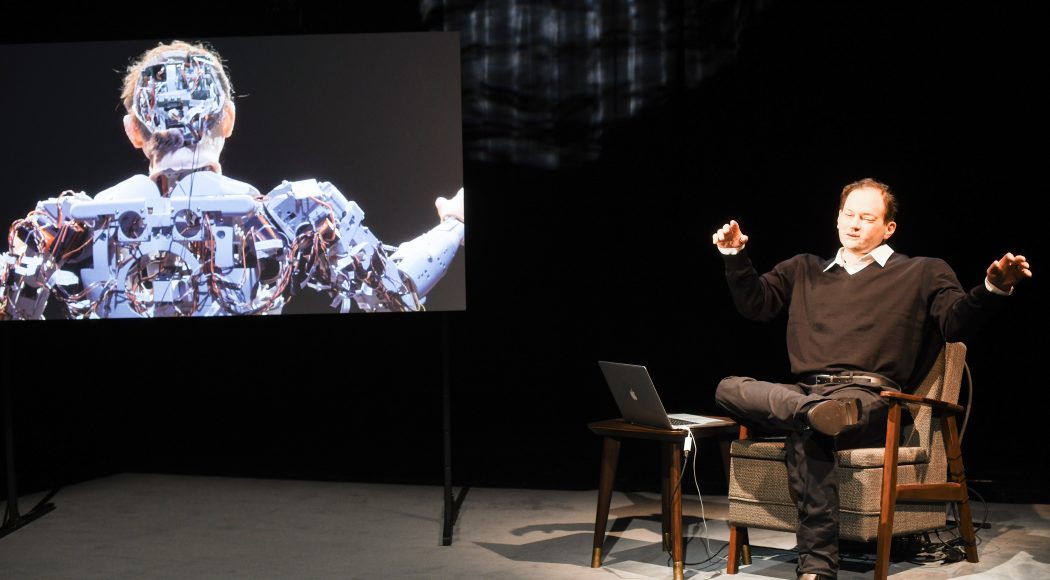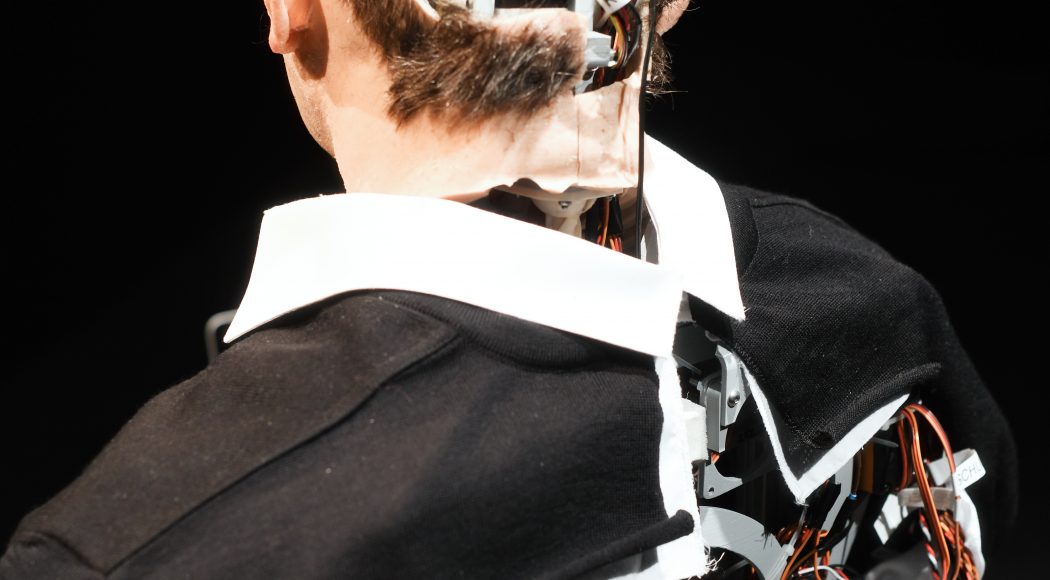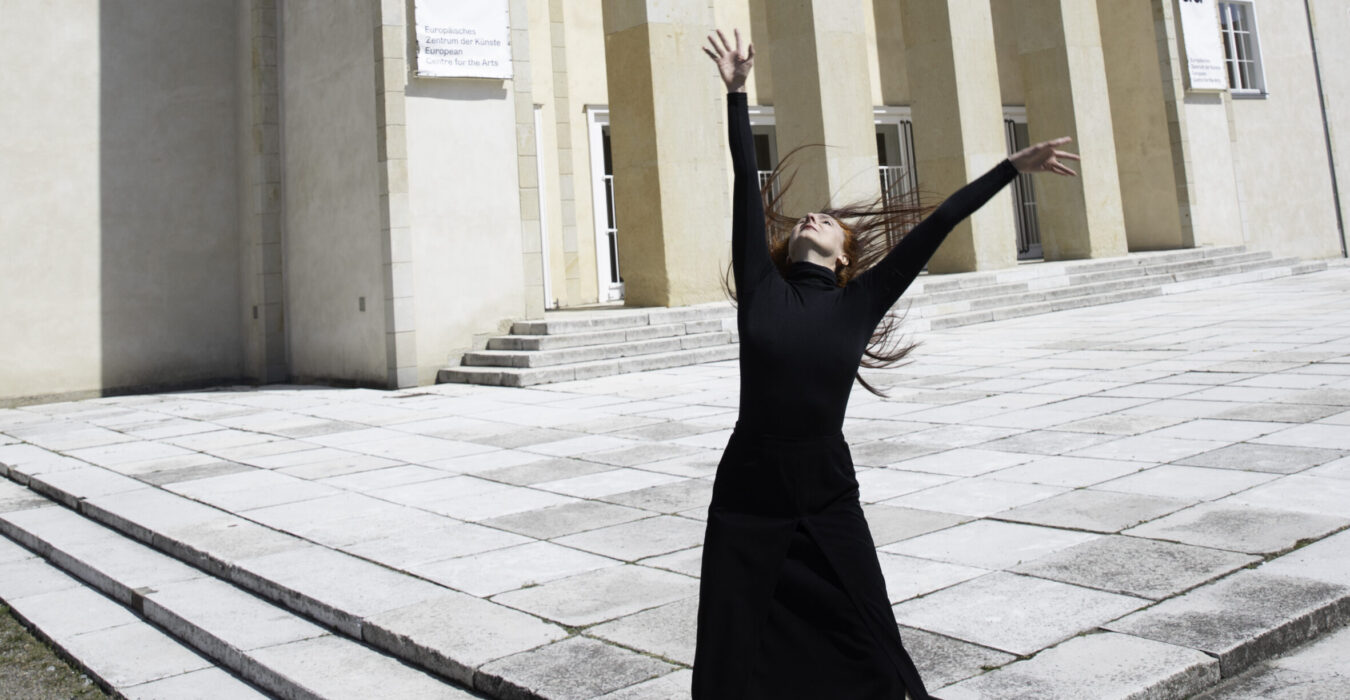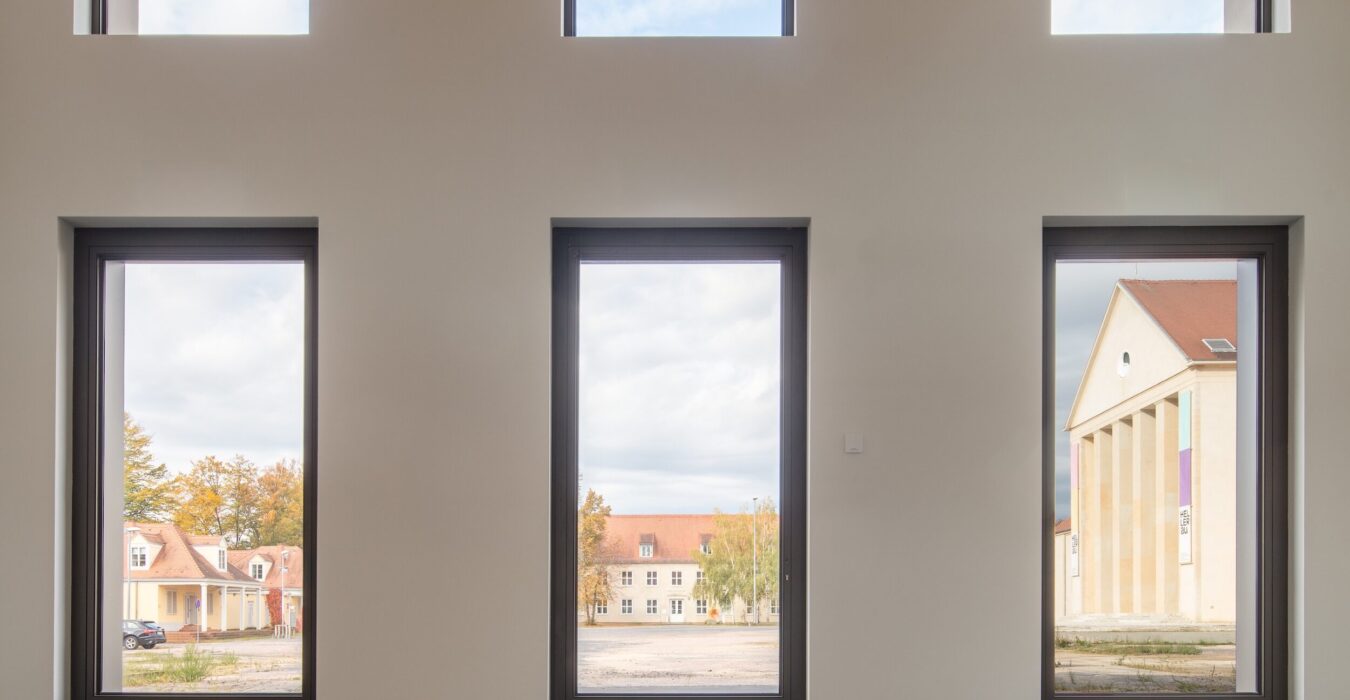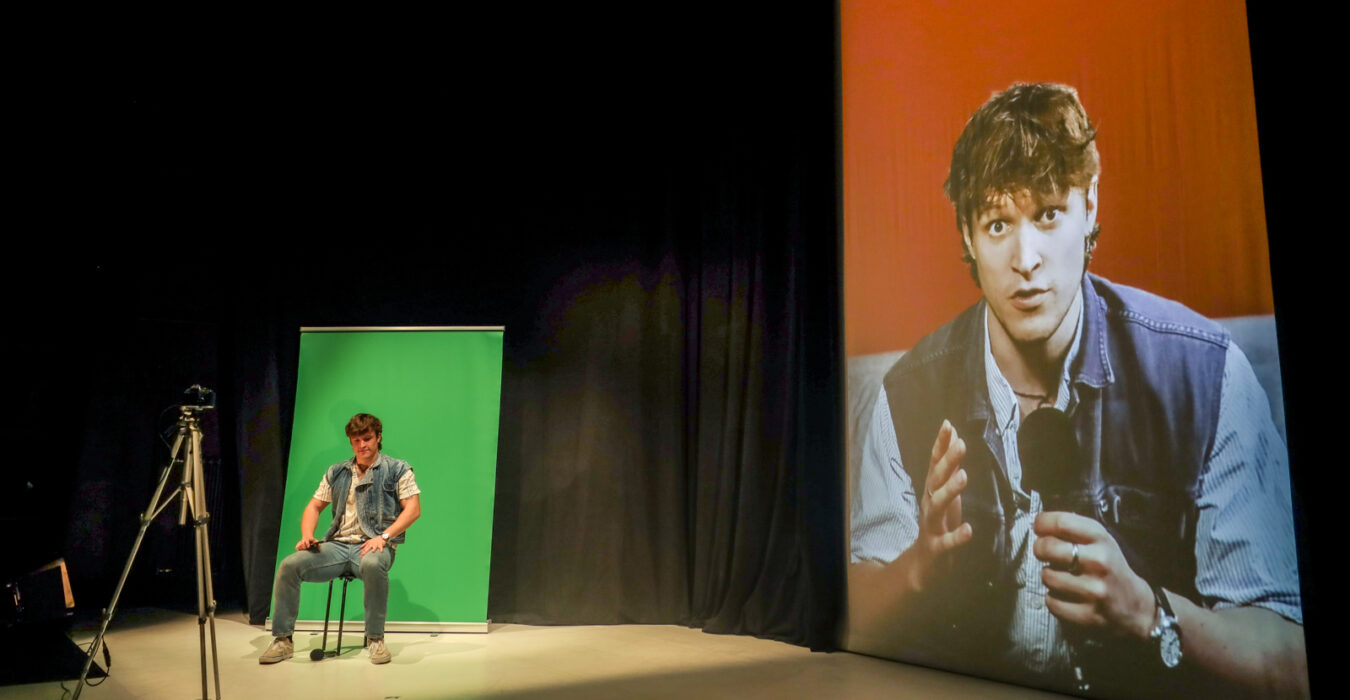Uncanny Valley/Unheimliches Tal
Rimini Protokoll (Stefan Kaegi) & Thomas Melle | Münchner Kammerspiele
We know robots above all as working machines, as efficient and precise executors. In German industry, they hardly look like humans in order to exclude emotional entanglements. In Asia, on the other hand, humanoid robots have been developed for a long time, for example for care of the elderly or as sex partners. The external similarity to humans should facilitate the acceptance of the machine here. But it also arouses distrust: What is a human being, what is a machine? Japanese robot researchers call this uncanny similarity “Uncanny Valley”.
The writer and playwright Thomas Melle has created an animatronic double for “Uncanny Valley”. This humanoid appears instead of the author and raises questions: Do the copy and the original compete with each other or do they help each other? Does the original come closer through its double? Who speaks and what is his program?
Thomas Melle observes and Kaegi documents how engineers reassemble his body from servo motors and silicone and program it so that the motors take over his repertoire of movements. Through precision mechanics, masks and costumes, the humanoid robot becomes a performer whose facial expressions, gestures and language could possibly trigger empathy – but empathy with whom? With Melle himself, who is no longer there, or with the robot? Who speaks in the uncanny valley?
In this way, the machine becomes a projection screen for a future in which the human original can no longer be discerned at some point. Such a humanoid is not an industrial worker, but a reference person, as we may soon meet her in a nursing home. In Rimini Protokoll, the author Thomas Melle becomes the creator of his image. He gives control to a doppelgänger, who represses him, reflects on the mutual relationship and makes this reflection repeatable evening after evening as a process that is often split.


